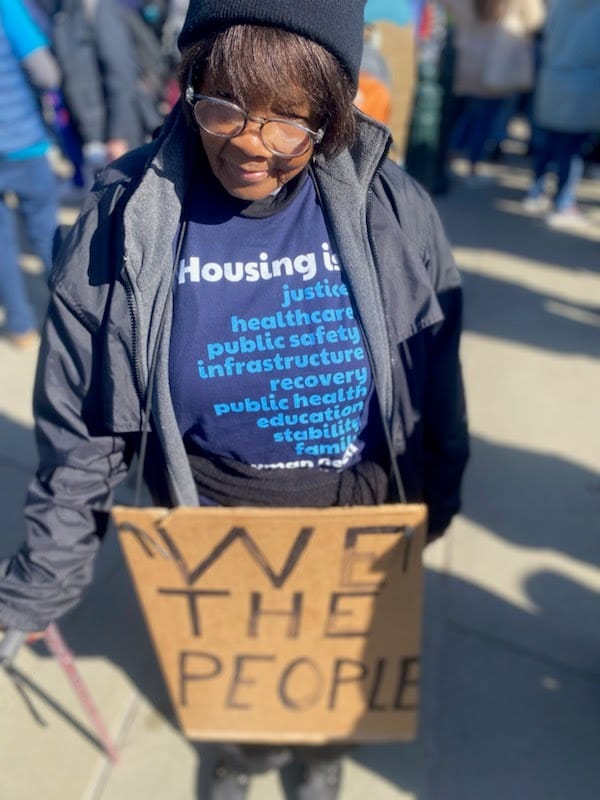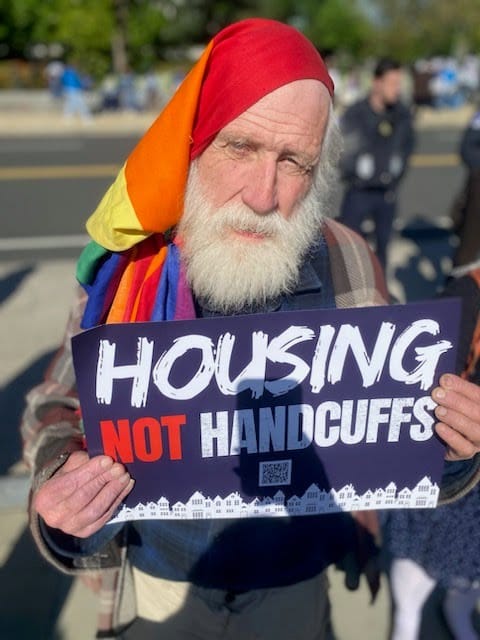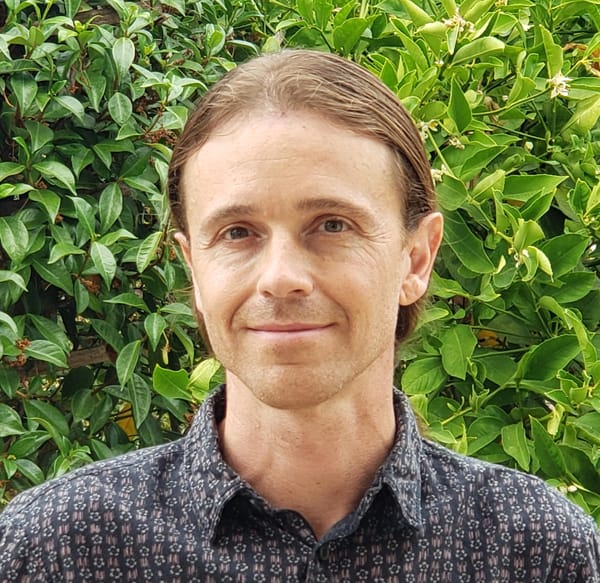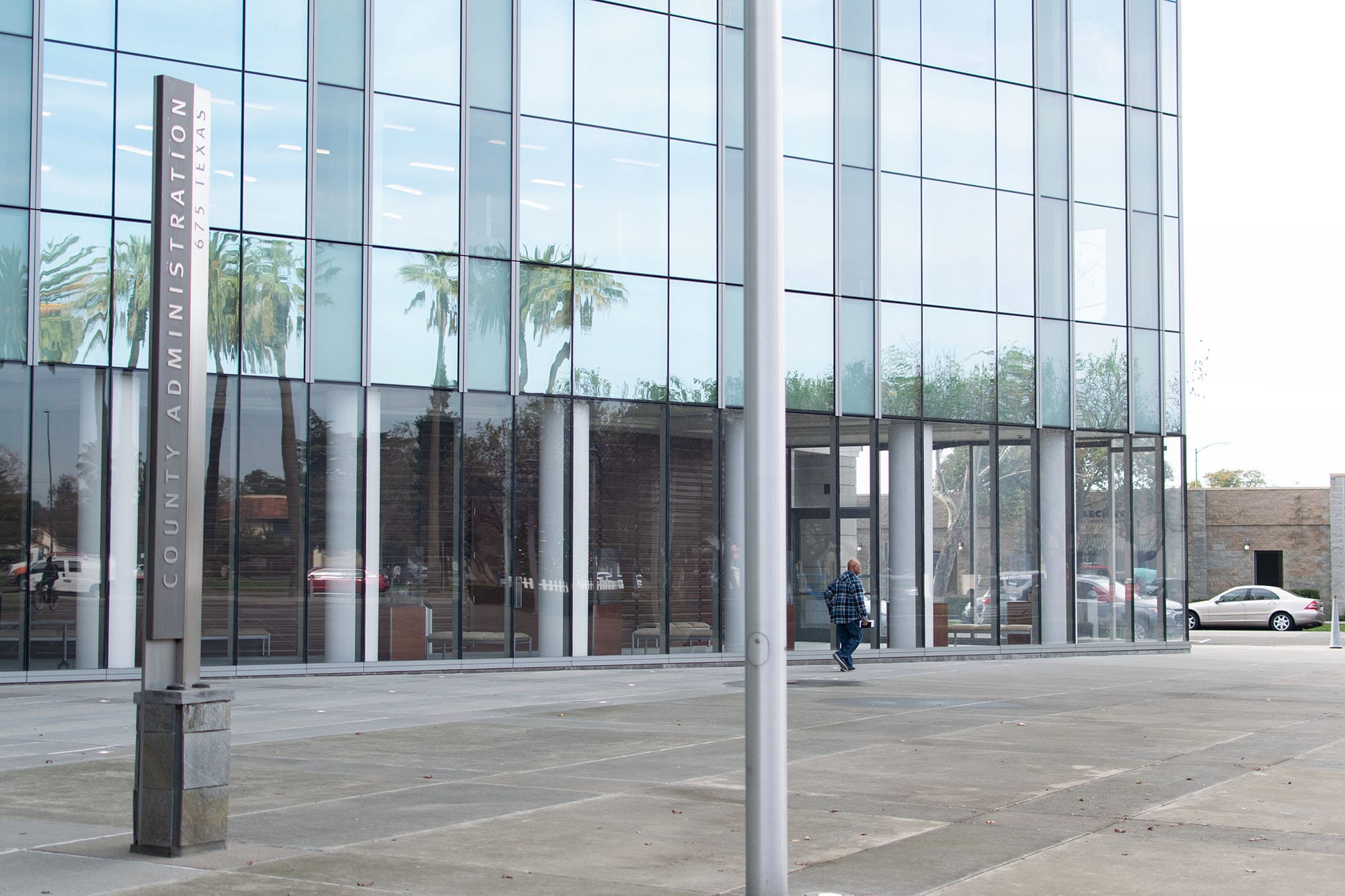VALLEJO – When Jennifer Artz first heard that the U.S. Supreme Court was going to review a pivotal appellate court ruling that has prevented many cities from issuing citations or arresting people for sleeping on public property, she immediately knew she had to be there in person.
On Monday, Artz attended a rally of about 700 people outside the Supreme Court in Washington, D.C., to send a message to the justices that criminalizing homelessness will not address the underlying problem, which is the lack of affordable housing across the country.
Artz is a social service worker with the Solano County Public Defender's Office, but outside of her work she has long been an advocate for those facing mental health or substance abuse issues, homelessness or impacts from the criminal justice system.
“If this case is overturned the implications are astronomical, I mean, it's going to be devastating, Artz said.


Two people attending a rally in Washington D.C. as the U.S. Supreme Court heard arguments on a pivotal homelessness case on Monday. Photos courtesy Jennifer Artz.
The Supreme Court heard arguments on Monday of an appeal of a 9th Circuit Court of Appeal ruling in Grants Pass v. Johnson, which is related to the more well known 9th circuit ruling, Martin v. Boise.
In the Boise case, the court found that arresting or fining people for sleeping outside when there are no shelter options available is a form of cruel and unusual punishment that is prohibited under the 8th Amendment of the Constitution.
The Supreme Court declined to hear an appeal of the 9th Circuit decision in 2019, which left the ruling in place as the controlling case law for the western U.S.
The ruling has drawn the ire of local officials. San Francisco sought to mount its own challenge and Vallejo Mayor Robert McConnell has floated the idea of seeking special dispensation from the federal government to clear homeless camps in Vallejo, where the number of homeless people far exceeds the available shelter space.
With the rapid rise in unsheltered populations across the country, city and state government officials, including California Gov. Gavin Newsom, urged the supreme court to review the 9th Circuit decision to clarify the limitations on enforcing camping bans in public spaces.
The city of Grants Pass, Oregon, had altered their anti-camping ordinance to accommodate the ruling while still allowing officers to issue citations for possession of items like bedding or camping equipment. The 9th Circuit found that Grants Pass could not simply prohibit the items used in connection with the act of sleeping and the city appealed to the Supreme Court, which agreed to hear the case earlier this year.
At the rally on Monday, organizers passed out reflective emergency blankets to symbolize the homelessness paraphernalia that the Grants Pass ordnance attempted to criminalize.
Artz had never heard of Grants Pass v. Johnson until she attended a conference on solutions to homelessness in San Francisco in March. She immediately recognized how the ruling could potentially affect her work in Solano County.
Artz said that fines and arrests end up creating multiple barriers for people who are struggling to find housing.
“You need to have decent credit in order to be able to rent and many landlords also ask for a background check,” Artz said. “People can also lose important belongings if they get arrested – they can lose phones, identification and the things they need for day to day survival.”
Artz has personal experience with addiction and homelessness. She lost her job and then her home in 1996. “I went from being a property owner to a person with nothing but a backpack,” she said.
“I remember the hopelessness. I remember feeling so lost, like there was no purpose,” Artz said. “I would be walking and get to an intersection and not know which way to go.”
Artz got into a drug treatment program and then stayed in a sober living center where she had enough support to get a job and her own place. Since then, she has worked with local agencies and organizations to support and advocate for those who are facing similar challenges. She also recently started her own organization called Let's Get Real Advocacy.
Artz said that she is not sure how Solano County cities will respond if the Supreme Court decision results in lifting some all or some of the limitations that the 9th Circuit rulings established, but she feels that any form of criminalization will only make things harder for those facing homelessness.
“There are so many barriers and so few resources – to add another risk would be unfathomable,” she said.
The Supreme Court is expected to deliver a ruling on the case by the end of June.
Before you go...
It’s expensive to produce the kind of high-quality journalism we do at the Vallejo Sun. And we rely on reader support so we can keep publishing.
If you enjoy our regular beat reporting, in-depth investigations, and deep-dive podcast episodes, chip in so we can keep doing this work and bringing you the journalism you rely on.
Click here to become a sustaining member of our newsroom.
THE VALLEJO SUN NEWSLETTER
Investigative reporting, regular updates, events and more
- Housing
- homelessness
- courts
- Solano County
- Vallejo
- Martin v Boise
- Grants Pass v Johnson
- U.S. Supreme Court
- 9th Circuit Court of Appeals
- Solano County Public Defender
- Jennifer Artz

Ryan Geller
Ryan Geller writes about transitions in food, health, housing, environment, and agriculture. He covers City Hall for the Vallejo Sun.
follow me :




